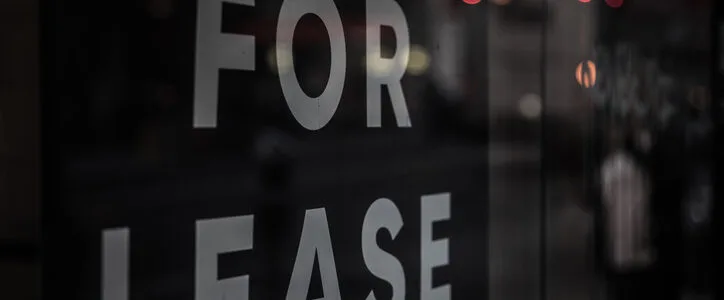Commercial leases can be quite complex and challenging to understand. Late fees and defaults can sometimes arise around leases. Since these elements directly impact lessees and lessors, the parties need a thorough understanding of the legal framework, best practices, and strategies regarding late fees and defaults, especially when managing and mitigating any potential issues.
What Are Late Fees?
Late fees in commercial leases are penalties the lessor imposes when the lessee fails to pay rent on time. These fees help to compensate the landlord for the inconvenience and potential financial strain resulting from delayed payments.
The fees stipulated in the lease agreement are enforceable. However, they must be reasonable. Lessees may challenge exorbitant fees. Additionally, the terms surrounding late fees should be clearly outlined in the lease. The amount of the late fee and the conditions under which it applies must be plainly written to ensure enforceability.
Defaults in Commercial Leases
A default occurs when a party does not fulfill their obligations under the lease agreement. This may include not paying rent, breaching covenants, or violating the lease terms. When a default occurs, a commercial lessor has specific rights to remedy the situation, while tenants may have defenses or remedies available to them.
The Rights of the Parties Regarding Defaults
When a default occurs, both parties have rights.
Lessor’s Rights
- Eviction – The lessor may initiate eviction proceedings in the event of non-payment of rent or other substantial breaches of the lease agreement. This legal process allows lessors to legally remove tenants from the properly.
- Damages – The lessor can seek compensation for financial losses resulting from the tenant’s default. These may include unpaid rent, repair costs, and other expenses incurred due to the tenant’s actions.
Lessee’s Rights
- Cure Period – Tenants may have a specified period to remedy or cure the default before facing further consequences such as eviction or additional penalties. This period allows tenants to correct issues and maintain their tenancy.
- Negotiation – Both parties can negotiate to find alternative solutions to address defaults and avoid litigation. Those solutions might include payment plans, temporary rent reductions, or other mutually agreeable arrangements.
- Legal Defenses – Tenants may have legal defenses against wrongful defaults or unreasonable demands made by lessors. These defenses ensure that tenants are not unjustly penalized and can challenge any actions that may not comply with legal standards.
Consequences of Late Fees and Defaults
Paying late fees or being in default can have other results.
Impact on the Landlord-Tenant Relationship
Late fees and defaults can strain the landlord-tenant relationship, leading to mistrust and potential legal disputes. Addressing these issues quickly and in a professional manner can help maintain a positive relationship.
Legal and Financial Consequences
- For Tenants – Accumulating late fees can lead to financial strain, potential eviction, and legal action for unpaid rent.
- For Landlords – Persistent defaults may result in lost revenue, legal costs, and challenges in re-leasing the property.
Dealing with Defaults
There are some steps to take in the event of a default. These include:
- Notification – Issue a formal notice of default to the tenant that outlines the breach and the corrective action they must take.
- Mitigation – Attempt to resolve the issue through negotiation or mediation before proceeding with legal action.
Legal Options Available to lessors
- Collection of Unpaid Rent – Commercial lessors can pursue legal action to recover unpaid rent and associated fees.
- Eviction – Commercial lessors can also initiate eviction proceedings if there is no remedy to the default within the specified timeframe.
Contact Our Business Lawyers Today
Understanding late fees and defaults in commercial leases is crucial for maintaining a healthy lessor-lessee relationship and ensuring the financial stability of your property investments. Our team at Sul Lee Law Firm can review your lease and take the appropriate measures to protect your interests. Contact our business lawyers now for a consultation.

